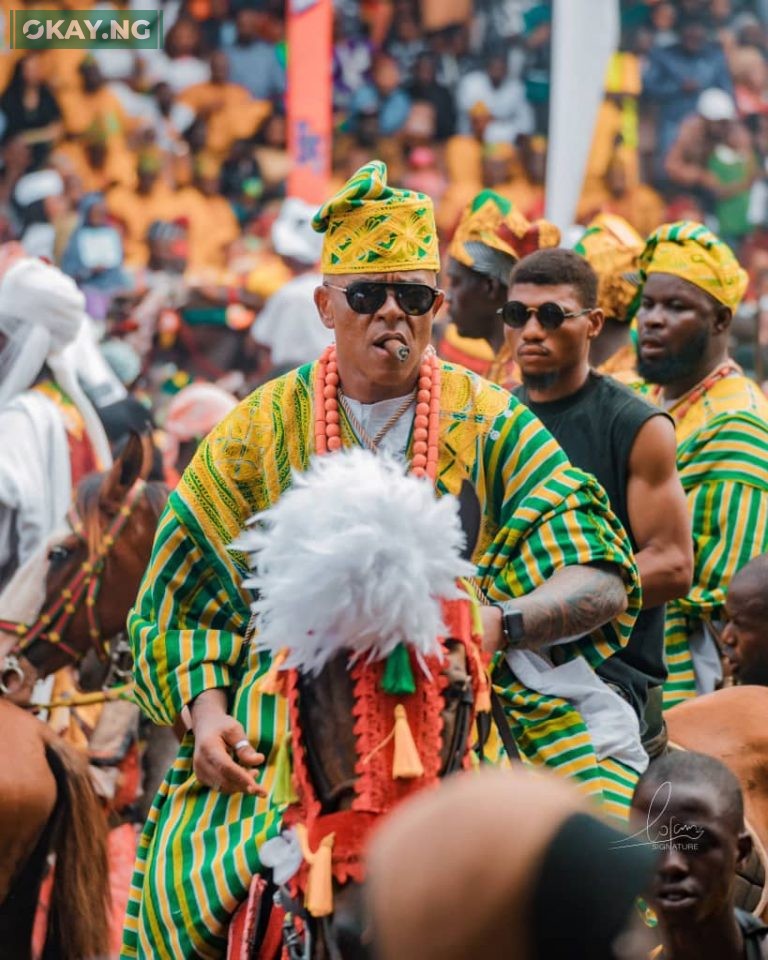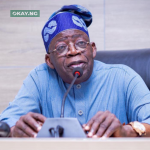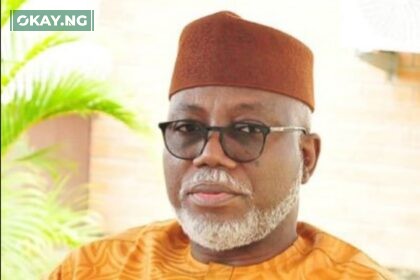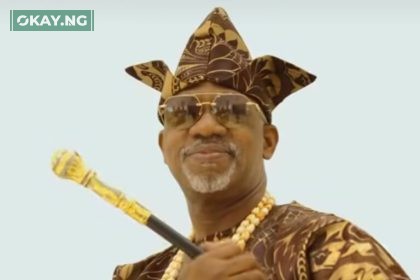The Ojude Oba Festival stands as one of Nigeria’s most culturally significant indigenous celebrations, deeply embedded in the traditions of the Ijebu people. Annually hosted in Ijebu-Ode, Ogun State, the event unfolds at the Awujale Pavilion under the reign of Oba Sikiru Adetona, the current Awujale of Ijebuland.
Scheduled on the third day following the Eid-el-Kabir (Ileya) festival, Ojude Oba is renowned for its lavish display of Yoruba heritage, vibrant cultural expressions, and a profound sense of community pride and unity.
Historically, the festival’s name, Ojude Oba, meaning “The King’s Forecourt,” originated as a modest gathering of Muslim faithful paying homage to the reigning Awujale. Over time, it has blossomed into a grand cultural event embracing participants from all faiths and backgrounds.
The festival traces its roots to the 19th century, coinciding with the spread of Islam among the Ijebu people. Early Muslim converts, led by Imam Tunwatoba, organized a visit to thank Awujale Ademuyewo Afidipotemole for his tolerant leadership that permitted the free practice of Islam. This tolerance significantly influenced the growth of Islam across the Ijebu communities during that era.
Before Ojude Oba’s emergence, the Odeda festival was the dominant traditional religious celebration in Ijebuland. However, as Islam gained prominence, converts like Chief Kuku found themselves unable to participate in Odeda, prompting the creation of Ita Oba, a festival observed after Eid, which eventually evolved into Ojude Oba.
Today, the festival is a spectacular showcase of Ijebu culture and Yoruba traditions, drawing thousands of attendees adorned in traditional attire such as Agbada, Iro, and Buba, crafted from exquisite fabrics like Aso Oke, Sanyan, and Adire. The festivities feature horse riding, musical performances, cultural dances, and intermittent gun salutes, all symbolizing the community’s pride in its heritage.
One of the festival’s highlights is the parade of age-grade groups, known locally as ‘Regbe Regbe.’ Each group dons coordinated costumes and takes turns greeting the Awujale through dances, prayers, and gift presentations. These social groups, including Obafuwaji, Bobagbimo, Bobakeye, Gbobalaye, and Gbobaniyi, consist of men and women from diverse professions and social classes, all sharing Ijebu descent. Their elaborate costumes and performances are often motivated by the opportunity to win cash prizes from sponsors.
As of 2024, over 90 age-grade groups actively participate, attracting more than 100,000 attendees and a growing international audience on social media. The festival’s horse riders, representing prestigious Balogun families such as Balogun Kuku, Balogun Odunuga, Balogun Alausa, Balogun Alatishe, and Balogun Adesoye, remain a central and celebrated feature.
The Ojude Oba Festival experienced a temporary suspension in 2020 and 2021 due to the COVID-19 pandemic, following directives from Oba Adetona to safeguard public health. However, the festival has since regained momentum, significantly boosting tourism in Ogun State.
Alongside other cultural events like the Lisabi Festival and Ikenne Ereke Day, Ojude Oba plays a pivotal role in promoting local culture and stimulating economic activities. Over the years, it has garnered increasing national and international attention, with social media influencers, lifestyle content creators, photographers, musicians, fashion designers, food and beverage brands, celebrities, the Ogun State Ministry of Tourism, and corporate sponsors such as Globacom Nigeria contributing to its growing popularity.
In 2024, visual content featuring Farooq Oreagba, Managing Director and CEO-designate of NG Clearing Limited, alongside other Regbe Regbe members, went viral, sparking admiration and widespread discussions online.
Looking ahead, the 2025 edition of Ojude Oba is slated for a Sunday, with expectations running high. The festival committee’s coordinator, Fassy Yusuf, revealed in an interview that approximately 100 million participants are anticipated to attend. Yusuf also mentioned that millions will be able to stream the festival live online from the Utoro centre.
Each year, the festival continues to evolve, enhancing its influence and cultural significance. In 2024, the Minister of Culture, Art and Creative Economy, Hannatu Musa-Musawa, disclosed the Federal Government’s plans to secure UNESCO recognition for Ojude Oba as a protected and officially supported cultural event, underscoring its importance on the global cultural stage.













